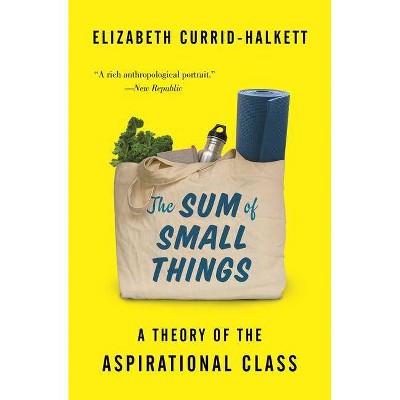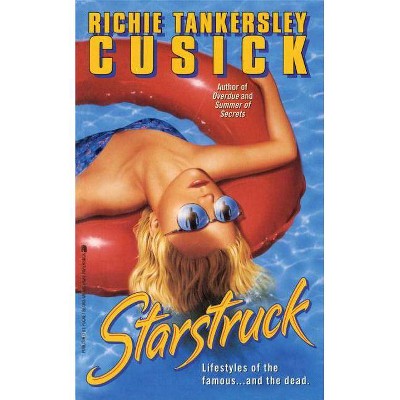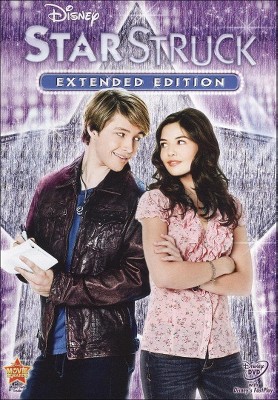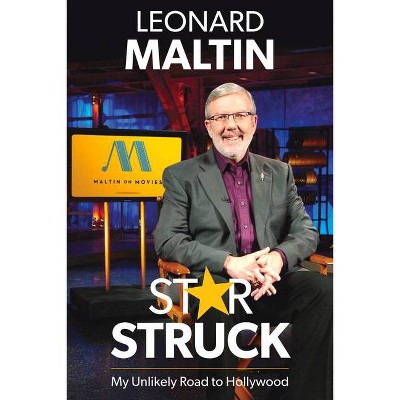Starstruck - by Elizabeth Currid-Halkett (Paperback)
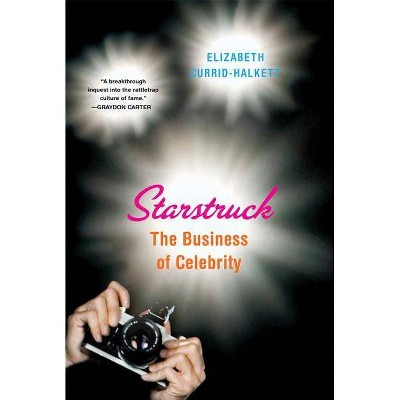
Similar Products
Products of same category from the store
AllProduct info
<p/><br></br><p><b> Book Synopsis </b></p></br></br><p>How was Nike able to take a gamble on an unknown Michael Jordan and transform itself from a $900 million company to a $9.19 billion company in less than fifteen years? Why did the artist Jeff Koons's <i>Balloon Flower (Magenta) </i>sell for a record $25.7 million in 2008? What does the high school football star have in common with the Hollywood headliner? And why should an actor never, ever go to Las Vegas? </p><p>In <i>Starstruck</i>, Elizabeth Currid-Halkett presents the first rigorous exploration of celebrity, bringing together extensive statistical research and analysis along with interviews with top agents and publicists, YouTube executives, major art dealers and gallery directors, Bollywood players, and sports experts. Laying out the enormous impact of the celebrity industry and identifying the patterns by which individuals become stars, Currid-Halkett successfully makes the argument that celebrity is an important social phenomenon and a driving force in the worldwide economy.</p><p/><br></br><p><b> Review Quotes </b></p></br></br><br><p>"In the age of Facebook and Twitter, <i>Starstruck</i> is a breakthrough inquest into the rattletrap culture of fame. Elizabeth Currid-Halkett casts her line remarkably far upstream to hook her reader, reels in the true meaning of contemporary éclat, and guts the residual billions that back it." --<i>Graydon Carter</i></p><p>"<i>Starstruck</i> makes me supremely glad of two things. First, that Elizabeth Currid-Halkett has produced this in-depth, intelligent, and passionate book on the shiny phenomenon of celebrity. Second, that I'm not famous." --<i>Sloane Crosley, author of How Did You Get This Number</i></p><p>"Elizabeth Currid-Halkett is a keen observer of popular culture and the contemporary world around us. Through her in-depth research and accessible writing style she convincingly demonstrates celebrity's social and economic importance. Currid-Halkett proves she is one of the brightest thinkers and scholars of her generation." --<i>Richard Florida, author of The Rise of the Creative Class</i></p><p>"This splendid book is the best treatment of celebrity today. It shows how modern celebrity can be understood, how much the culture of celebrity is big business, and how much celebrity matters for understanding each and every one of our lives." --<i>Tyler Cowen, author of Discover Your Inner Economist, and coauthor of the Marginal Revolution blog</i></p><p>"A brilliant, in-depth examination of that rather slippery condition we call celebrity. <i>Starstruck </i>weaves together an astounding mix of elements and shows us how we all actually contribute to and share in the making of celebrity. In a wonderful cultural turn, Elizabeth Currid-Halkett captures some of the reasons that people do the hard work of tracking and allocating celebrity." --<i>Saskia Sassen, author of A Sociology of Globalization and The Global City</i></p><p>"With analytic gusto, Elizabeth Currid-Halkett takes on a force larger than the stars--the underlying system that demarcates a few specific others as worthy of special attention and as a basis for emulation, amusement, and investment. Celebrity is, <i>Starstruck</i> convincingly shows, an omnipresent basis of social organization. This book gives it, at long last, appropriate dignity as a topic for serious inquiry." --<i>Harvey Molotch, author of Where Stuff Comes From</i></p><p>"By tackling America's current condition of free-news oversaturation and ubiquitous fixation with celebrities, Currid-Halkett (Policy, Planning, and Development/Univ. of Southern California; <i>The Warhol Economy: How Fashion, Art and Music Drive New York City</i>, 2007) asks how much celebrity-dominated airwaves, newspapers, magazines and conversations distract us from more meaningful issues. "[O]n the whole," she writes, "many of us care far more about [Jennifer] Aniston's latte than the thousands being murdered in Sudan." The author backs up her case by citing solid studies, interviews and statistics--including the number of times a celebrity is photographed in a year, or how many events he/she attends--all of which she weaves together with accessible language while maintaining narrative momentum. She defines celebrity as the phenomenon of society valuing certain individuals for reasons that outweigh--or are entirely unrelated to--their talent. It's this key difference, she argues, between how much attention should be paid to someone (due to their talent) and how much attention is actually given, that accounts for "celebrity residual." This is most likely to show up in the fields of entertainment, sports and politics. More than anything else, people respond to visual stimuli, which, to a large extent, explains Paris Hilton's camera-friendly rise to become the "ultimate celebrity." There's also the relatively recent sphere of reality-TV stars, like the Gosselins or Kardashians--talentless people who captured the public's interest. Celebrity permeates every level of society, and Currid-Halkett deftly tracks how this democratic celebrity--of both mainstream stars as well as, say, the local high-school quarterback or an incessantly updating Facebook friend--reveals how the world is organized. She looks at the economics, accounting for all the money made by photographing celebrities, and the roots and duration of stardom. The book raises surprisingly uncomfortable questions, including why society is so invested in people who, for all intents and purposes, could be fictional characters for how little impact they have on our reality. Approachable and thorough." --<i>Kirkus Reviews</i></p><br><p/><br></br><p><b> About the Author </b></p></br></br><p><b>Elizabeth Currid-Halkett</b> is the author of <i>The Warhol Economy </i>and an assistant professor of sociology at the University of Southern California. She holds a PhD in urban planning from Columbia University and divides her time between New York and Los Angeles.</p>
Price History
Price Archive shows prices from various stores, lets you see history and find the cheapest. There is no actual sale on the website. For all support, inquiry and suggestion messagescommunication@pricearchive.us
